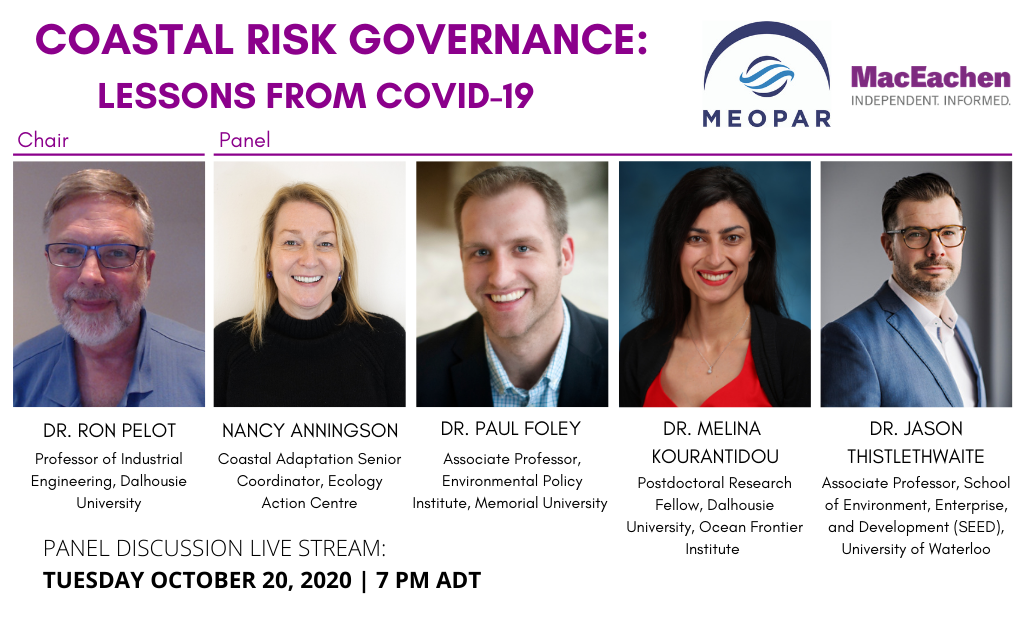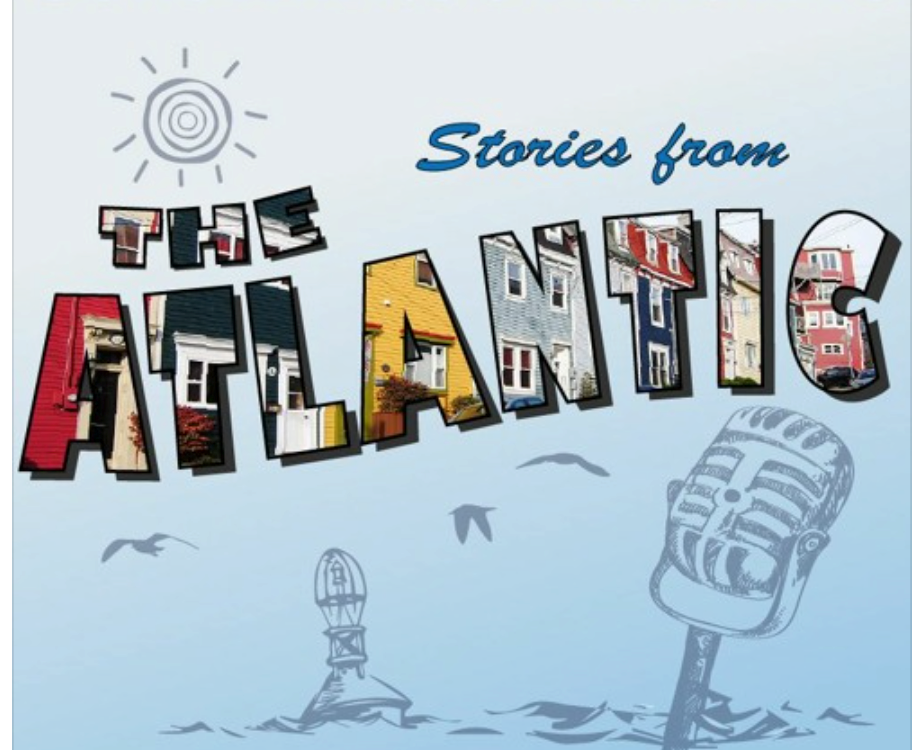
An interdisciplinary approach for the Future of Ocean and Coastal Infrastructures.
June 19, 2020
Coastal Risk Governance: Lessons From COVID‑19
October 22, 2020I am looking to recruit two PhD students within my new project entitled “Methodological Cosmopolitanism: Exploring Cosmopolitan Governance of Global Oceans” funded by the Social Sciences and Humanities Research Council (SSHRC) of Canada. Both doctoral fellowships are funded through full stipends. The fellowships are open to national and international students with a master degree in social sciences, such as political science, international relations/international studies, international public policy, international/global environmental policy and politics, environmental governance, environmental sociology, sociology of risk and uncertainty, international political sociology, maritime sociology, political geography, human geography, or a related field.
The selected candidates will work under my supervision at the Environmental Policy Institute (EPI) and will be enrolled in the new PhD program “Transdisciplinary Sustainability” in the School of Science and Environment at Memorial University of Newfoundland, Grenfell Campus, Canada. See the following link for the new PhD program: https://grenfell.mun.ca/academics-and-research/Pages/school-of-science-and-the-environment/Graduate-Programs/transdisciplinarysustainability.aspx
Project Overview
Oceans raise a series of questions and issues about the balance between conservation and use, the ownership of ocean resources, possible developments towards the sustainable use of the resources, national claims, jurisdiction beyond nation-state territory, international mechanisms of distribution, ocean governance and so on. Given their importance, oceans induce an inevitable inclusiveness and prompt the cosmopolitization of the action and manner of governing the oceans. The idea of this research project is based on the premise that research questions as well as political and social questions in the context of any governing related to oceans cannot satisfactorily be answered by methodological nationalism. The research project asserts the necessity of making the ocean governance more attentive and adaptive to a cosmopolitan approach and less dependent on the intergovernmental model and the domination of nation-states. The project raises the question: what accounts for cosmopolitan ocean governance. The project opens up a global perspective to capture the forces and factors transcending the borders and entities of persisting national spaces and jurisdictions. Cosmopolitan governance addresses the interests of human individuals directly as world citizens and not indirectly as state citizens. The project will work iteratively between theoretical reflection and the empirical investigation of three case studies. It will conduct a cross-regional and trans-sectoral comparative analysis: fisheries in North America, loss of marine biodiversity in Europe and freight transport by sea in East Asia. The challenge is to find and define new research units beyond methodological nationalism that allow us to understand and compare tendencies and processes of cosmopolitization around the globe.
For more details of the project see https://grenfell-epi.com/epi-faculty-and-staff/dr-andreas-klinke/
Job Description
The PhD positions will be in the new PhD program “Transdisciplinary Sustainability”. The PhD research will include a combination of theoretical reflection and empirical analysis of cases studies, mentioned in the project overview, to better understand whether and how methodological cosmopolitanism evolves. Each PhD will conduct one of three major case studies. In particular, the students will conduct literature reviews and analyses, discourse analyses and field work (e.g. interviews) in the frame of the case studies to fathom and estimate how distinctive environmental sectors contribute to new forms of cosmopolitan ocean governance. The PhD students will also contribute to the project organization and management. To this end, the PhD students will work closely with the Principal Investigator (Prof. Dr. Andreas Klinke) at the Environmental Policy Institute.
Please send your applications to my email address below. Include a cover letter with your research interests, your CV and the names of three persons for academic references with their contact information. Non-native English speaking applicants are supposed to include a recognized English test. Applications will be reviewed beginning August 1, 2020 until the positions are filled.
For further questions or inquiries send me an email.
Kind regards
Andreas Klinke
Prof. Dr. Andreas Klinke
Environmental Policy Institute
Email: [email protected]



